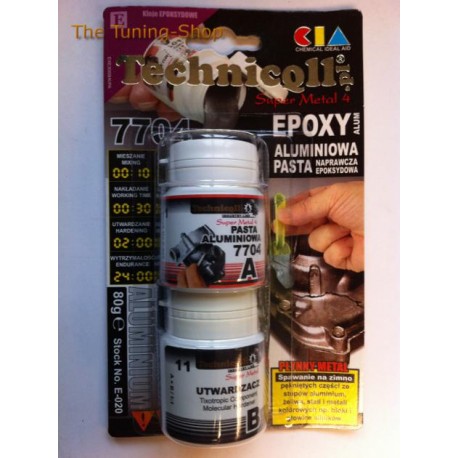No products
TECHNICQLL - DIY ACCESSORIES
-
CAR MAKES
- ACURA
-
ALFA ROMEO
- SPIDER Series 2 (1974-1982)
- 145 / 146 (1994-2000)
- 147 (2000-2010)
- 155 (1992-1997)
- 156 (1997-2007)
- 159 (2004-2011)
- 164 / 168 (1987-1998)
- 166 (1996-2007)
- 1750 GT Veloce (1967-1971)
- 33 (1983-1995)
- 75 (1985-1992)
- BRERA / SPIDER (2005-2010)
- GIULIETTA (2010-2019)
- GT (2003-2010)
- GTV / SPIDER (1995-2005)
- MiTo (2008-2018)
- SPIDER Series 4 (1990-1993)
- AUDI
-
BMW
- E114 (1966-1977)
- E21 (1975-1982)
- E24 (1975-1989)
- E28 (1981-1988)
- E30 (1982-1991)
- E32 (1986-1994)
- E34 (1988-1995)
- E36 (1991-1998)
- E38 (1995-2001)
- E39 (1995-2003)
- E46 (1999-2005)
- E60 E61 (2003-2010)
- E63 (2003-2010)
- E81 E82 E87 E88 (2004-2013)
- E90 E91 E92 E93 (2005-2013)
- K1300 GT (2009-2012)
- X1 E84 (2009-2013)
- X3 E83 (2003-2010)
- X3 F25 (2011-2016)
- X5 E53 (1999-2006)
- Z3 (1995-2002)
- Z4 E85 (2002-2008)
- CHEVROLET
- CHRYSLER
- CITROEN
- DAEWOO
- DAIHATSU
- DODGE
- DS
- EAGLE
- FIAT
- FORD
- GMC
- GREAT WALL
-
HONDA
- ACCORD
-
CIVIC
- CIVIC MK4 (1988-1991)
- CIVIC MK5 (1992-1995)
- CIVIC MK6 (1996-2000) Hatchback 3D / Coupe
- CIVIC MK6 (1996-2000) Hatchback 5D / Sedan
- CIVIC MK7 (2001-2005) EP2 / EP3 Si (USDM) Hatchback
- CIVIC MK7 (2001-2005) Sedan / Coupe
- CIVIC MK8 FK2 TYPE S (2006-2012) Hatchback
- CIVIC MK8 FN2 TYPE R (2006-2012) Hatchback
- CIVIC MK8 Si (2006-2012) Sedan / Coupe
- CIVIC MK9 (2013-onwards) Hatchback, Estate
- CR-V
- CRX
- HR-V
- INTEGRA
- JAZZ / FIT
- LEGEND
- PRELUDE
- S2000
- STREAM
- HYUNDAI
- INFINITI
- JAGUAR
- JEEP
- KIA
- LANCIA
- LAND ROVER
- LEXUS
- MAZDA
- MERCEDES-BENZ
- MERCURY
- MG
- MINI COOPER
- MITSUBISHI
- NISSAN
- PEUGEOT
- PLYMOUTH
- PONTIAC
- PORSCHE
- RENAULT
- ROVER
- SAAB
- SEAT
- SEAT BELT COVERS
- SKODA
- SMART
- SUBARU
- SUZUKI
- TECHNICQLL - DIY ACCESSORIES
- TOYOTA
- UNIVERSAL PRODUCTS
-
VAUXHALL / OPEL
- ASTRA F (1991-1997)
- ASTRA G / COUPE (1998-2005)
- ASTRA H (2005-2010)
- ASTRA J (2009-2015)
- CALIBRA (1990-1997)
- CORSA B (1993-2000)
- CORSA C (2000-2006)
- CORSA D (2006-2013)
- FRONTERA (1991-1998)
- INSIGNIA MK1 (2008-2016)
- KADETT E / ASTRA E (1984-1991)
- MERIVA A (2002-2010)
- MONARO (2001-2006)
- OMEGA A / CARLTON (1986-1994)
- OMEGA B (1994-1999)
- OMEGA C (1999-2003)
- SIGNUM (2003-2008)
- SINTRA (1997-1999)
- TIGRA A (1994-2001)
- TIGRA B TWINTOP (2004-2009)
- VECTRA A / CAVALIER (1988-1995)
- VECTRA B (1996-2002)
- VECTRA C (2002-2008)
- VIVARO (2001-2013)
- ZAFIRA A (1999-2005)
- ZAFIRA B (2005-2011)
-
VOLKSWAGEN
- AMAROK
- BEETLE
- CADDY
- CORRADO
- CRAFTER
- EOS
- FOX
- GOLF
- GOLF PLUS
- JETTA / BORA
- LUPO
- NEW BEETLE
- PASSAT
- PASSAT CC / CC
- POLO
- ROUTAN
- SCIROCCO
- SHARAN
- T2 (1967–1979) Transporter, Bus, Camper
- T3 / T25 (1979–1992) Transporter, Bus, Camper
- T4 (1990-2003) Transporter, Bus, Multivan, Eurovan
- T5 (2003-2015) Transporter, Bus, Multivan, Caravelle
- TIGUAN
- TOUAREG
- TOURAN
- VOLVO
Viewed products
-

1 x EPOXY ALUMINIUM...
A BRAND NEW1 x EPOXY ALUMINIUM PASTE...
1 x EPOXY ALUMINIUM PASTE FOR FIXING CRACKS IN METAL PARTS ENGINE BLOCKS HEADS BROKEN THREADS 80g TECHNICQLL NEW
E-020
New product
A BRAND NEW
1 x EPOXY ALUMINIUM PASTE FOR FIXING CRACKS IN METAL PARTS, ENGINE BLOCKS, HEADS, BROKEN THREADS etc 80g
The packaging include a piece of reinforsement mesh and two plastic spoons
86 Items
More info
A BRAND NEW
1 x EPOXY ALUMINIUM PASTE FOR FIXING CRACKS IN METAL PARTS, ENGINE BLOCKS, HEADS, BROKEN THREADS etc 80g
The packaging include a piece of reinforsement mesh and two plastic spoons
DESCRIPTION:
Two component epoxy aluminium paste possesses the highest adhesion to all hard materials: metals and their alloys and casts as well glass, wood and stone. Characterized by hardness resembling the material to be repaired and perfectly are suitable to mechanical work (grinding, boring, threading). Resistant to aggressive chemical agents (e.g. oils, acids, solvents) and weather factors (rain, snow, radiation). Metal powders improve heat conductivity and expansion at work temperature of joints (-40ºC to +120ºC). Fiber fillers strengthen internal reinforcement of hardened ensuring high resistance to abrasion vibrations, hits and breaking.
HOW TO USE:
1. Immerse the containers in hot water (5 min. at 90ºC. The liquid component may be easier got out of the container)
2. Prepare the bowl to mix the components (e.g. a lid with a flange)
3. Apply both components A+B of the same volume using different tea spoons (if not sure use smaller quantity of component B)
4. Thoroughly mix up to uniform colour – without streaks and blisters of air (if not sure you should mix even 10 min. use up within 30 min.)
5. First apply to nooks and corners and gaps to fill them (recommended gap of a joint amounts to 0,05-0,1mm)
An excess of the adhesive may be removed with an organic solvent e.g. acetone. After mixing the adhesive cures at room temperature as a result of reaction between the components, (about 24 h) however warming at a high temperature (e.g. electrical dryer considerably shortens time of curing and improves strength parameters of a joint. Full strength is achieved after 24 h.
PARAMETERS
| Consistency | thick paste |
| Colour | silverly-grey |
| Density | A=1,3-1,5 g/cm3 , B=1,7-1,9 g/cm3 |
| Impact resistance | 10,4 kJ/m2 |
| Shearstrength | 11 MPa |
| Temperature resistance | -40°C to +120°C |
| Chemical resistance | resistant to water, oils, gasoline, solvents and alkalis |
| Waterabsorption | 0,15% |
| Curing time | 2 hrs |








